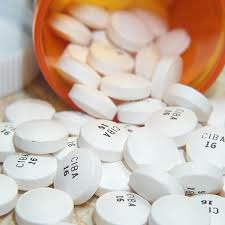Retirement comes with its own set of questions and things to look out for, especially…
Available Plans Offering Prescriptions for Less
 We have all had a shock effect when going up to a checkout counter. Sometimes an item is not on sale as we had originally thought, and other times the price had simply increased, leaving us with the decision whether or not to continue with the purchase. However, when the item is a necessary prescription drug, we do not always have the option not to make the purchase.
We have all had a shock effect when going up to a checkout counter. Sometimes an item is not on sale as we had originally thought, and other times the price had simply increased, leaving us with the decision whether or not to continue with the purchase. However, when the item is a necessary prescription drug, we do not always have the option not to make the purchase.
Generic drugs typically cost 30% to 80% less than the comparable branded drugs. However, generic drugs are seeing sudden and dramatic price increases. For example, a cholesterol lowering prescription bottle of Pravastatin that was normally $27.00 has increased to $196.00. For many that depend on this medication on a regular basis, this causes a huge financial hardship.
While the exact reason for the dramatic increase is still unclear, there are speculations. The first being a shortage in the raw materials needed to make the drugs. The second speculation is a bit more in depth, and considers the amount of competition there is on the market. When there are multiple companies targeting the same line, often times one or even more will discontinue their option, creating less competition, and thus allowing room for price increases.
Lastly, as science and technology continually advance, it is becoming increasingly difficult for manufacturers to replicate drugs at an affordable rate. Many are no longer even attempting to create generic versions, as they do not receive protection from a patent. Without generic options available, patients are forced to pay name brand prices.
What can be done?
Vermont Senator Bernie Sanders is proposing a bill that would require generic drug makers to pay a rebate to Medicaid if the cost increases faster than inflation.” To date this bill has not gone through, but it is reassuring to know that lawmakers are acknowledging patient’s rights and recognizing there is a problem.
Insurance companies are even stepping to the plate to protect our pocketbooks. Many are now offering a variety of plans to help offset the skyrocketing costs of generic drugs.
For example, under Part D of Medicare, there is a Medicare exception. This exception states that if a person has tried either a Tier 1 or Tier 2 drug, and it did not work or the person experienced an adverse medical reaction, upon approval, they could be eligible to receive their Tier 3 drug at the less expensive generic cost.
This is just one of the many ways Wisconsin seniors are able to pay less for their drugs. Throughout our many years in the industry, not only have we have gained strong relationships with various insurance companies, but we have gained a wealth of knowledge that gives our members the edge, year after year. Contact us today and let us find you the best possible coverage for your prescription needs.
